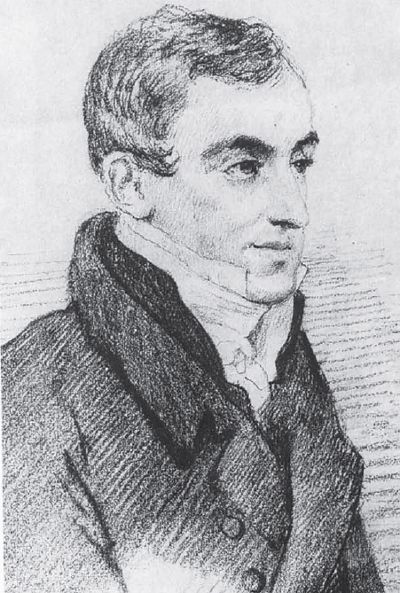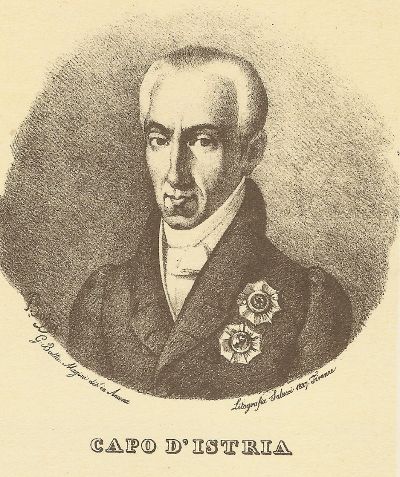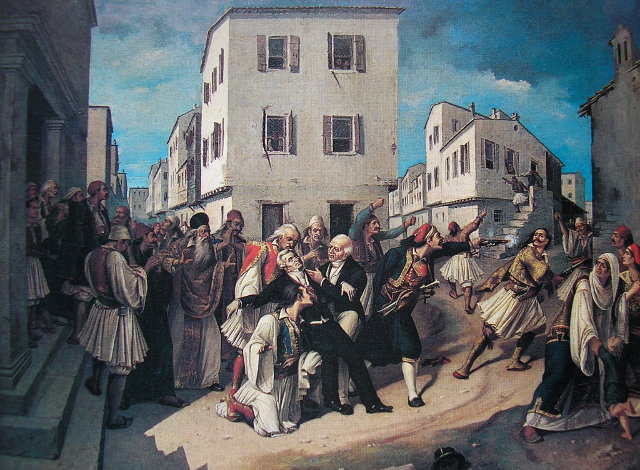Ioannis Kapodistrias is a well-known Greek politician and diplomat. He served as Minister of Foreign Affairs of Russia and became the first Governor of the independent Greek State.
Early Life:
Ioannis Kapodistrias was born in Corfu on February 11, 1776 during the Venetian occupation. His father, Komis Antonio Capo d’Istria, came from a noble family, as one of his ancestors had received the title of Earl from the Duke of Savoy Carlos Emmanuel II.
Kapodistrias studied medicine, philosophy and law at the University of Patavia (Padua) in Italy. In 1797, he settled in his hometown of Corfu and practiced the profession of doctor-surgeon.
In 1799, Russia and Turkey drove the French from the Ionian Islands and organised them into the Septinsular Republic. Kapodistrias participated in writing the new state’s second constitution (adopted 1803) and became its secretary of state (1803) at just 25 years of age.

Diplomacy for Russia:
France regained control of the Ionian Islands in 1807 and Kapodistrias entered the Russian foreign service two years later. He became an expert on Balkan affairs, which earned him a post with the commander of Russia’s armed forces on the lower Danube River in 1812.
After the army marched north to oppose Napoleon’s invasion of Russia (1812), Kapodistrias was assigned as a diplomat to the army staff and was later sent by Tsar Alexander I on a special mission to Switzerland in 1814.
After attending the postwar Congress of Vienna as one of Russia’s representatives (1814–15), Kapodistrias became a highly influential adviser of the emperor. After January 1816, he was also given equal responsibility with Karl Robert Nesselrode, the director of the Ministry of Foreign Affairs, for the conduct of Russia’s foreign policy.
His return to Greece:
When Tsar Alexander I refused to support the Greek revolt against Turkey (begun March 1821), Kapodistrias, who had a deep sympathy for the cause of Greek independence, although he had earlier refused to lead the major Greek revolutionary organisation, found himself in an intolerable position.
In 1822, therefore, he took an extended leave of absence from the Russian service and settled in Geneva, where he devoted himself to supplying material and moral relief to the Greek rebels until April 1827, when he was elected provisional president/Governor of Greece.

Resigning from the Russian service, he then toured Europe seeking financial and diplomatic support for the War of Greek Independence and arrived at Nafplion, Greece’s capital, in January 1828.
He subsequently directed his energies toward negotiating with Great Britain, France and Russia (which had all joined the war against the Turks) over the settlement of Greece’s frontiers and the selection of its new monarch.
Kapodistrias’ domestic policies as Governor:
As Greece’s first Governor, Kapodistrias founded the National Financial Bank, even though it did not prosper for long.
He regulated the monetary system, as Turkish and foreign currencies were still circulating within the territory.
On July 28, 1828, he established the Phoenix as the national monetary unit and founded the National Mint. On September 24 that same year, he organised Greece’s first postal service and later, established the Statistical Service, which carried out the country’s first census.
Death and Legacy:
Kapodistrias’ political moves eventually provoked the dissatisfaction of both the supporters of the constitutional regime, as well as some nobles and sailors. But it was Kapodistrias’ rivalry with the Mavromichalides, the strongest family of Mani, which proved fatal.

At 5.35am on September 27, 1831, Kapodistrias was murdered by Konstantinos and Georgios Mavromichalis outside the church of Agios Spyridon.
For a short tie, Kapodistrias’ brother Augustine was appointed to replace him, but the country ended up in chaos and anarchy. Authorities took the opportunity to establish a monarchy, fearing the rise of a liberal movement.
Greece honored its first Governor by giving his name to public places and institutions, such as the University of Athens, whose official title is the National and Kapodistrian University of Athens.
Kapodistrias is also depicted on the 20-cent coin of the Greek version of the euro, while the administrative reorganisation plan of the country, proposed by the Simitis government, was named the “I. Kapodistrias Program.”
Source: San Simera and Britannica

